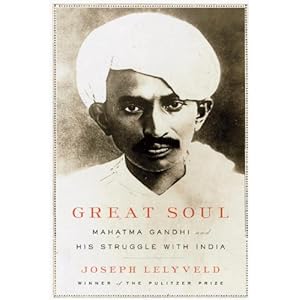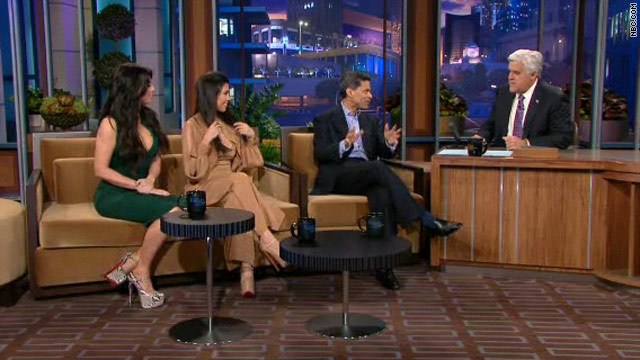- EDITION: U.S.
- INTERNATIONAL
- MÉXICO
Zbigniew Brzezinski served as national security adviser to President Jimmy Carter from 1977-1981. In this role, he was intimately involved in brokering the Camp David Accords and wrestling with Iran's transition from a U.S. ally to an anti-Western Islamic republic. Brzezinski is currently a professor of American foreign policy at the Johns Hopkins School of Advanced International Studies.
I spoke with Brzezinski on GPS today to get his take on events unfolding in the Middle East and the global consequences.
Fareed Zakaria: We are in a stalemate it appears. You were in favor of this intervention. You argued that it would send a politically damaging signal in the Arab world for the United States to have stood by while a slaughter took place. But now we're in a situation that seems somewhat predictable - that is, neither side has the ability to win, and the United States is sort of in the middle here. What should we do?
Zbigniew Brzezinski: Well, first of all, I think we have to face the fact that if we hadn't acted, today Gadhafi would be standing astride the Middle East as the most successful anti-American defiant and hostile leader. So we have avoided that.
But now we have to make certain that he doesn't stick around, and I'm concerned that time is not on our side. The longer this thing lasts, the more likely he'll end up entrenched in at least half of Libya.
So I think we have to push, and while caution and restraint are the proper words, especially since we need the support of the Arab League, in fact there are a lot of things we can be doing, I suspect we are doing (in any case we should be doing) to make certain that he doesn't stick around.
Let's talk for a moment about the Quran burning in Florida and it's consequences. Most Americans are repulsed by the offensive actions of Pastor Terry Jones, a publicity-seeking extremist. But they must wonder how an isolated act like that could produce so much violence halfway across the world in Afghanistan.
So let's trace the event.
The Quran burning took place two weeks ago – to not much publicity. It was not highlighted by the international media and was not a big story in Afghanistan. There had been a few small, peaceful protests last Wednesday.
Then, Afghan President Hamid Karzai decided to try to capitalize on the issue and score some political points.
Last Thursday he made a speech loudly condemning the burning and calling for the arrest of Pastor Jones. But having lived in America, Karzai understands well that people cannot be arrested here for engaging in free speech, which includes burning flags or books.
Karzai's speech opened the door for Imams across the country to use their pulpits on Friday to call for protests and more.
That is when all hell broke loose.
How much do you know about the world? This week test your knowledge on questions about what Khamis Gadhafi was doing in the U.S., who ruled during the Hama massacre, and what question drew a laughing response from President Obama.
You can take more quizzes here.
If you've got great ideas for future quiz questions, let us know.

This week's book of the week is Great Soul: Mahatma Gandhi and His Struggle with India. It's by Joseph Lelyved, the former editor of the New York Times.
It's not a conventional biography. It tells the story of a how a young Indian lawyer went to South Africa politically inactive and was transformed into this great leader of a mass, nonviolent resistance movement.
How did Mohandas Karamchand Gandhi become Mahatma Gandhi?
A fascinating story.
On this week's live GPS, former National Security Advisor to President Jimmy Carter, Zbigniew Brzezinski, weighs in on the turmoil in the Middle East and America's response.
Then we have a terrific panel lined up to discuss the situation in Libya from the no-fly zone to the revelation that the CIA is working with the rebels on the ground:
- Bernard-Henri Lévy, French Envoy to the Libyan resistance, and the private citizen most responsible for getting the world to intervene in Libya
- Richard Haass, President of the Council on Foreign Relations
- Robert Baer, a former CIA officer and author of See No Evil: The True Story of a Ground Soldier in the CIA's War on Terrorism
- Robert Worth, Middle East correspondent for the New York Times,
Next, who better to talk about al Qaeda's involvement in Libya than one of Osama bin Laden's former associates? Noman Benotman, a Libyan who says he was there during the planning of 9/11 but now works on counterterrorism talks to Fareed about what al Qaeda could be up to in his homeland.
And finally, a robot may have conquered Jeopardy, but are robots now conquering Afghanistan?
Tune in this Sunday at 10a.m. ET/PT.
I was a guest on "The Tonight with Jay Leno" Thursday night along with theKardashian sisters.
Jay Leno is an incredibly charming guy who's really smart and thoughtful about international affairs and American politics. And Kim and Kourtney were lovely - very happy I got their autographs for my kids' babysitter.
We talked about Libya - a topic we'll cover on this Sunday's live GPS.
And Leno asked me about my 'feud' with Glenn Beck. Here's what I said: "It's the easiest thing to call somebody an 'America Basher' when they disagree with you. But I'm not an American by birth like Glenn Beck is. I'm an American by choice."
Check out the clips below.
And here's the original "What in the World" segment where I fact checked Glenn Beck's math:
Hadeel al-Shalchi and Lee Keath of Associated Press offer an excellent analysis of how Gadhafi's rule is particularly vulnerable to wavering tribal support. (The video above from CNN profiles some of the Libyan opposition's leaders.)
The biggest danger to Moammar Gadhafi is not the rebel forces struggling to march on his capital. It's more likely to be the crumbling of the remaining, fragile support for his regime.
That is what makes the defection of Foreign Minister Moussa Koussa a heavy blow. He was part of a small circle of key insiders and family who have the most to lose if Gadhafi loses power. As those figures peel away, it makes the majority of his supporters, who have much looser ties, less certain that Gadhafi is capable of staying in power.
The Libyan leader relies most on his immediate family and his tribe, the Gadhadhfa. But his tribe is a relatively small one among the estimated 140 tribes that predominate life in the North African nation of about 6 million. So he vitally needs the support of others, whose allegiance he has bought over the years by handing their members top political and security posts.
My colleagues Ishan Tharoor and Tony Karon over at Time's Global Spin bloggive us five rental movies each week to bring us up to speed on the world's events. This week they recommend:
Charlie Wilson's War
In a week where - thanks to the stubborn refusal of Moammar Gadhafi to disappear in a puff of eyeliner - Washington's fancy has turned once again to arming the enemies of our enemies, it's time to dust off Mike Nichols' camp rendering of the true tale of Texas congressman Charlie Wilson's efforts to get weapons to the Afghan mujahedeen.
Simon Henderson, the Baker Fellow and Director of the Gulf and Energy Program at the Washington Institute offers a strong analysis of Qatar's quest to become the leading Arab state. Here are some key points from the article:
Background
- "The Qatari peninsula is about the size of Connecticut."
- "In recent days, Qatar became the first Arab state to contribute to no-fly-zone patrols over Libya."
- "It has also offered its status and experience in OPEC to help the rebels market the Libyan oil and gas production that they control."
- "Qatar's Aljazeera satellite television channel is among the most watched in the region."
The Director of International Survey Research at Pew Global Attitudes Project, James Bell, thinks not. Recent Pew survey data shows the Chinese are much more optimistic about their future than the Egyptians were:
"…While the Egyptian and Chinese publics rated their current lives comparably, Chinese reported much more personal progress over the past five years and much more optimism looking ahead.
"The prevailing feeling in Egypt was one of losing ground. In fact, between 2007 and 2010, the number of Egyptians reporting a low quality of life doubled, suggesting that in the lead-up to this year's popular revolt frustrations may have been mounting not only with respect to democratic yearnings, but in terms of personal aspirations.
"By contrast, nearly two-thirds of Chinese judged their lives to be better than five years ago....
"The Chinese were decidedly upbeat about the future as well. In spring 2010, 74% believed their lives would be better in five years – an impressive level of optimism compared with opinions in the U.S. and Western Europe. In Egypt, only 23% anticipated a higher quality of life, while 40% predicted a lower quality. In China, just 6% believed their lives would worsen over the next five years."





No comments:
Post a Comment